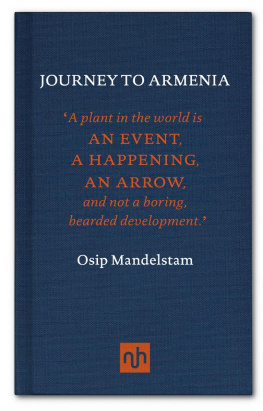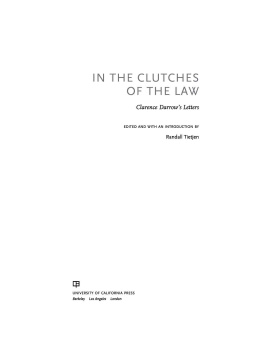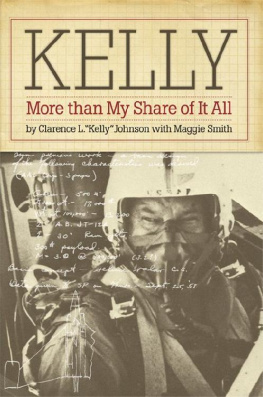University of Virginia Press
2017 by the Estate of Clarence J. Glacken
All rights reserved
Printed in the United States of America on acid-free paper
First published 2017
1 3 5 7 9 8 6 4 2
LIBRARY OF CONGRESS CATALOGING-IN-PUBLICATION DATA
Names: Glacken, Clarence J., author. | Rajan, S. Ravi, editor. | Romero, Adam, editor. | Watts, Michael, 1951editor.
Title: Genealogies of environmentalism : the lost works of Clarence Glacken / edited by S. Ravi Rajan with Adam Romero and Michael Watts.
Description: Charlottesville : University of Virginia Press, [2016] | Includes bibliographical references and index.
Identifiers: LCCN 2016002831| ISBN 9780813939070 (cloth : alk. paper) | ISBN 9780813939087 (pbk. : alk. paper) | ISBN 9780813939094 (e-book)
Subjects: LCSH: Natural historyHistory. | EnvironmentalismHistory. | NaturalistsBiography. | EnvironmentalistsBiography.
Classification: LCC QH15 .G53 2016 | DDC 508dc23
LC record available at http://lccn.loc.gov/2016002831
Foreword
Large related bodies of thought thus appear, at first like distant riders stirring up modest dust clouds, who, when they arrive, reproach one for his slowness in recognizing their numbers, strength and vitality.
Clarence Glacken, Traces on the Rhodian Shore
By some strange twist of fate, I occupy Clarence Glackens old office in the Department of Geography on the fifth floor of the McCone Building on the Berkeley campus. Glackens old office faces east, looking up into the Berkeley hills and beyond, to the eucalyptus near the Lawrence Hall of Science. I came to Berkeley in the fall of 1979. Glacken was then retiredhe had stepped down from full-time teaching following a heart attack in 1974but was still active, working assiduously every day on the sequel to Traces on the Rhodian Shore. Clarence was a striking figure: tall and ramrod straight, with, at that point in his life, long gray hair, often pulled back into a ponytail. He was neither physically nor intellectually imposing: quite the contrary, he was quiet and sensitive. Modesty seemed to me to be his distinguishing trait. Clarence always seemed to me a model of Old World gentility; he was gentle to a fault.
Clarence James Glacken (190989) was a third-generation Sacramentan. His paternal grandmother had moved to the city in a covered wagon as an infant in 1854, and both grandfathers settled in the city during the 1870s. His parents were Sacramento natives, born and raised downtown. Growing up at 1830 T Street with his younger brother, Glacken counted among his immediate family his mother (his parents had divorced during World War I), an uncle, and maternal grandparents.
Glacken attended Sacramento Junior College for two years, where he was encouraged by his English instructor to study with the great historian Frederick Teggart at the University of California, Berkeley. It was Teggart who becameand in many senses remainedthe towering intellectual figure in Glackens life. In his first year, in addition to a course on the politics and history of the Far East, Glacken enrolled in Teggarts course, The Idea of Progress. The undergraduate class dealt with cyclical theories and myths of the golden age in the ancient world, with providential interpretations of history in the Middle Ages, and with the idea of progress in the modern era. Teggart (18701946) had begun his career as a librarian and archivist, examining the problems of cataloguing ancient libraries and working on specialized bibliographies on railways, oil, forests, or Victorian poetry. In 1916 he published a book on the relationship of history to other branches of knowledge (Prolegomena to History: The Relation of History to Literature, Philosophy and Science, University of California Press, 1916), and two years later he published The Processes of History (Yale University Press, 1918). By the time Glacken appeared in his class it was the idea of progress that compelled him. During his years at Berkeley, Glacken had no time for anyone but for Teggart, who was a revelation. Alfred L. Kroeber and Robert H. Lowietwo other towering figures on campusand Carl O. Sauer were not part of his intellectual formation. Glacken was aware of Sauer, but his sole interest lay in Teggart. He devoted himself almost exclusively to the study of the history of ideas: certainly to the ideas of Teggart himself, but also to those of the likes of Arthur Burtt and his book, The Metaphysical Foundations of Modern Physical Science (1925), and the scholarship of John Livingston Jones on the English poet Coleridge. Glacken received his undergraduate degree with highest honors in 1930 and his masters degree in 1931, both from the Teggart-chaired Department of Social Institutions, an innovative and unusual program that long preceded other much-heralded multidisciplinary initiatives, such as Harvards Department of Social Relations, which were to appear after World War II.
Under Teggarts tutelage, Glacken did not, of course, escape geographic ideas. Among the teachers in the Department of Social Institutions was a young assistant, Margaret Hodgen (199077), who at the time was working on the history of anthropology and the dynamics of social change. Through her class, Glacken deepened his understanding of not just the anthropology classics but also the history of environmental ideas, including works by French geographers and the American geographer Ellsworth Huntington. Hodgen was part of an anthropological community in which the relations between the discipline, space, and environmentone thinks of culture areas and the early iterations of what was to become cultural ecologywere developing apace in and around Kroeber and Sauer. Yet none of this seemed to push Glacken toward geography.
Glackens route back to Berkeley as a faculty member traced a circuitous, two-decade-long circumambulation of the globe. Glackens graduation from Berkeley launched him into what he called the bleak years of the Great Depression. In the five years following his departure from Berkeley, Glacken worked for the newly established Farm Security Administration (FSA), reporting on migrant labor camp conditions throughout the state of California, from Redding to Bakersfield. With the savings he could muster from his FSA position, in 1937 Glacken traveled from San Francisco to Japan, then to China, Indochina, the Middle East, the Mediterranean, and Europe. Without this species of fieldwork, Glacken once claimed, he would neither have come to grasp the full meanings of cultural difference nor have been able to move beyond a world of abstractions.
In 1941, three months after his first wife died, Glacken was drafted into the army and served for six years. During his service he married Mildred Mosher, who was an assistant to the influential Malthusian ecologist William Vogt, author of the bestseller Road to Survival (1948) and associate director of the Division of Science and Education of the Office of the Coordinator of Inter-American Affairs. Following Japans surrender and the emergence of a northeast arc strategy, the U.S. government quickly recruited and trained specialists in Japan and Korea to staff management positions in those territories, and Glacken was selected as an officer-student for training in Japanese affairs at the Civil Affairs Training School, which had been formed at the University of Chicago and was directed by the anthropologist Fred








